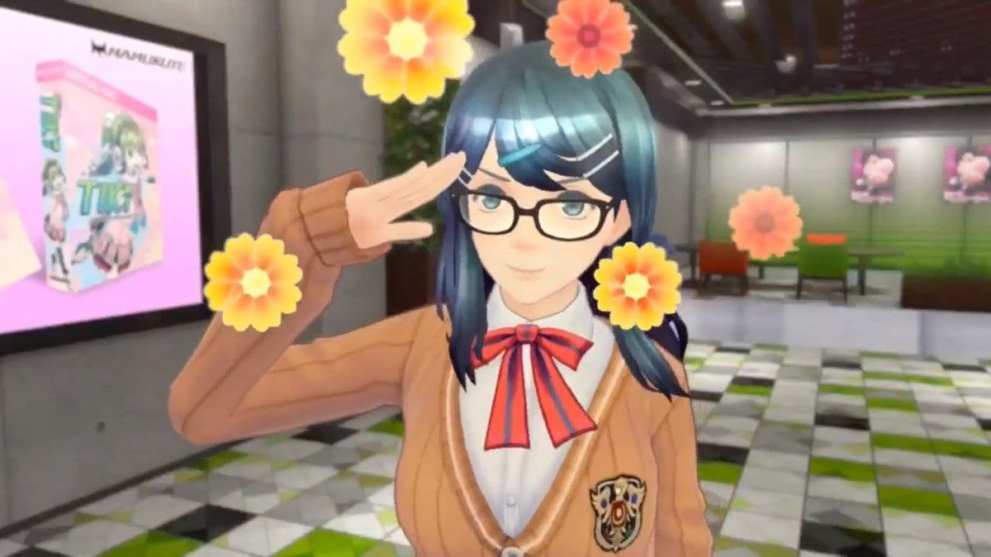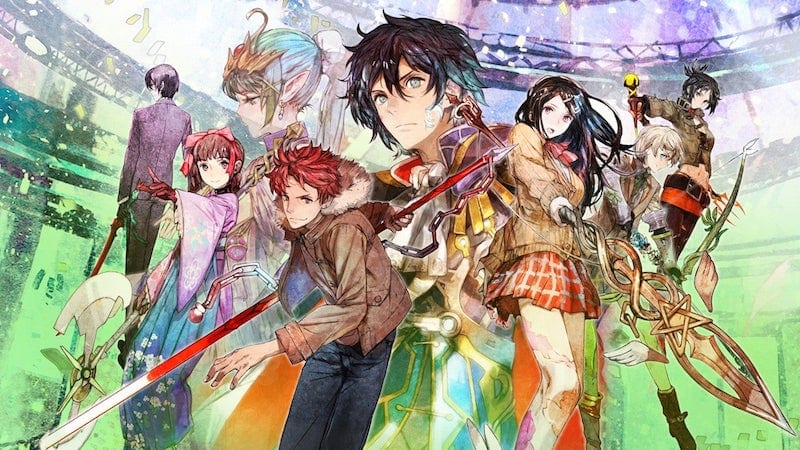今日はみんなさん!私は日本語の先生です。一生に勉強しませんか。
Oh, my apologies… I forgot that not everyone is fluent in Nihongo, a gift that only master otaku like myself have been bestowed. As such, I’ll do my best to accommodate to your primitive English vernacular; a bastard language where bear is both a verb and a noun, while bare is an adjective, and occasionally, also a verb.
The cause of this newfound sagacity to the tongue of the gods is the month I have spent with Tokyo Mirage Sessions #FE Encore on the Nintendo Switch, a game that is more Japanese than a katana-wielding sumo riding atop a Kawasaki with a mouthful of sushi.
Let’s put it this way; there is literally an option whether or not you want a particular character to wear glasses throughout the game. Moreover, not only is it a choice you can make, it’s one of those things you’ll agonize over, irrationally fearful that the wrong answer will somehow have a negative impact on your experience, even if it is merely aesthetically.

Like many, I missed the original release on the Wii U, an injustice we all share that helped usher the hapless console to an early grave. But I amended that this year on its plucky hybrid successor, in a fickle display of consumerism.
To wit, on the Wii U, I skipped even games that I would normally have purchased, like Mario Kart 8 or DKC: Tropical Freeze. On the Switch, I am gobbling up games with the reckless abandon of Pac-Man, sometimes only possessing a vague interest in the content. Even if it was a game that literally reached out of the screen to punch you square in the face, if it was on the Switch, I’d probably want it.
So Tokyo Mirage Sessions, then, or as I prefer to call it, 幻影異聞録#FEつばさちゃんは一番大切なワイフです。
For the uninitiated, it takes place in modern-day Tokyo, and centralizes around the idea that idols are akin to gods, which isn’t really that far from real-life Tokyo, to be honest. A select few have the potential to fuse with ethereal beings known as Mirages, which gives them untold powers.
It stars characters with names like Itsuki Aoi, Tsubasa Oribe and Ecchi Tsundere, and is loaded with fully voiced cutscenes recorded entirely in Japanese. Characters will even trade discourse throughout battles without any subtitles whatsoever, allowing you to learn real fast which words suggest that something good is occurring, and what means you’re failing miserably.
Tsubasa’s mutterings of ’kowakunai’ are her way of trying to convince herself that she’s not scared, but to the layman, she could just as easily be talking about what she had for lunch.

If you want to enjoy the game to its fullest, you adapt. You adjust. You evolve from kohai to senpai – or else you just get left behind. People will call you baka. You’ll reply, ‘baka na’. The cycle will perpetuate.
The benefits of your burgeoning knowledge will stretch far beyond Tokyo Mirage Sessions, of course. Anime will take on a new level of depth. You’ll watch Kuroko no Basuke, and discover that Izuki’s sirloin-related quip, ‘this steak is steakalicious’, comes from the fact that the original dialogue is actually wordplay based on the Japanese words for splendid and steak sounding similar, meaning that there is no direct workable translation. You’ll learn that characters’ traits or social standing are often dictated by which dialect they use, in a consistent trope of classism and tribal beliefs that border on jingoistic.
I’m only a single month into my Tokyo Mirage Sessions playthrough, and already my perspective on meaning and implications have been distinctly refined, suggesting that after another three months — to say nothing of three years — I will have at last ascended to the theoretical ‘galaxy brain’, a master of words and political affairs both local and abroad; a staunch defender of not only Japanese sensibilities, but a mouthpiece for harmonic discourse across the entire planet.
What I’m trying to say is, I kinda wish this game had an English option. I think it’s making me a little loopy… ですね。













Updated: Feb 20, 2020 11:05 am